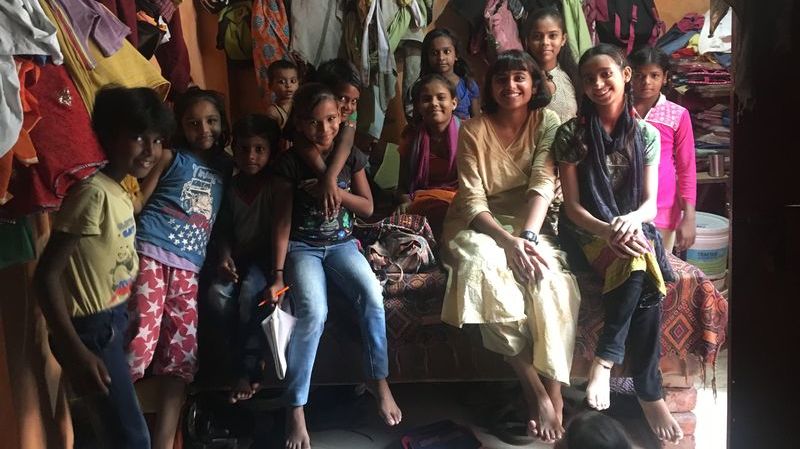
When conducting a study in any community, it’s important for researchers to understand and respect that community’s history, language, religious customs, hierarchies and autonomy. When conducting research internationally, the need for this understanding becomes even more crucial as the cultural differences expand.
For a new study examining menstrual hygiene, public health student Tanya Dhingra already has an intimate understanding of that context. In the summer of 2018, she returned to her home country of India, where she lived before coming to Temple, and examined perceptions on menstrual hygiene and the quality of menstrual education for adolescent girls. Though she grew up in a different setting than the girls she spoke with, her background allowed her to have a unique connection with the participants, a connection that proved crucial for discussions around such a sensitive topic.
The project builds on Dhingra’s experience with the nonprofit Child Rights and You (CRY) in 2017, when she organized workshops for adolescent girls in India that provided information on menstruation and menstrual hygiene. After the internship, she became interested in further exploring the topic.
Dhingra received funding through the Diamond Research Scholar Program to continue her work, mentored by Heather Murphy, assistant professor in the Department of Epidemiology and Biostatistics.
She conducted the research in New Delhi over the span of 10 weeks. The study focused on a Muslim and Hindu community within the same urban slum. The type of education that students receive on reproductive health differed greatly in both communities, according to Dhingra.
She surveyed the quality and prevalence of toilets in schools and homes—Dhingra noted that not all homes in these communities were equipped with latrines, and people sometimes have to walk more than ten minutes to nearby facilities, which can be dangerous at night.
Dhingra also interviewed both adolescent girls and their mothers about menstrual health, including their cultural or religious beliefs and experience with sexual health education.
She found that females are often treated differently during menstruation: They can be forced to sleep outside of the house, made to only eat food that is cooked separately, forbidden from touching the food of others, and barred from going into temples.
Dhingra also examined differences in education between the two communities. In the Muslim community, she learned that girls were provided textbooks that contain detailed information and descriptions about menstruation, the reproductive system, Premenstrual syndrome, and consent. Dhingra found that girls attending public schools in the Hindu community, however, were sheltered from these topics and did not discuss menstruation.
One of Dhingra’s goals is to foster the belief that periods are a normal part of biology and development of all girls to communities that often do not hold that belief.
“I am not going to drive religion out of their lives or make it the bad guy in this situation,” said Dhingra. “I want them to know that this is a biological process, that God made you like how you are, and it's a good thing. It is not a bad thing.”
Dhingra hopes her research can lead to positive impacts in the ways that adolescent girls in these communities see menstrual health—and their own bodies.
“I feel like I'm just going there as, for many of them, something like an elder sister—somebody who can talk to them, who looks like them, who speaks the same language as them, and genuinely is compassionate and wants them to know that they are whole, like full human beings,” she said.
Read more research stories from the College of Public Health.
